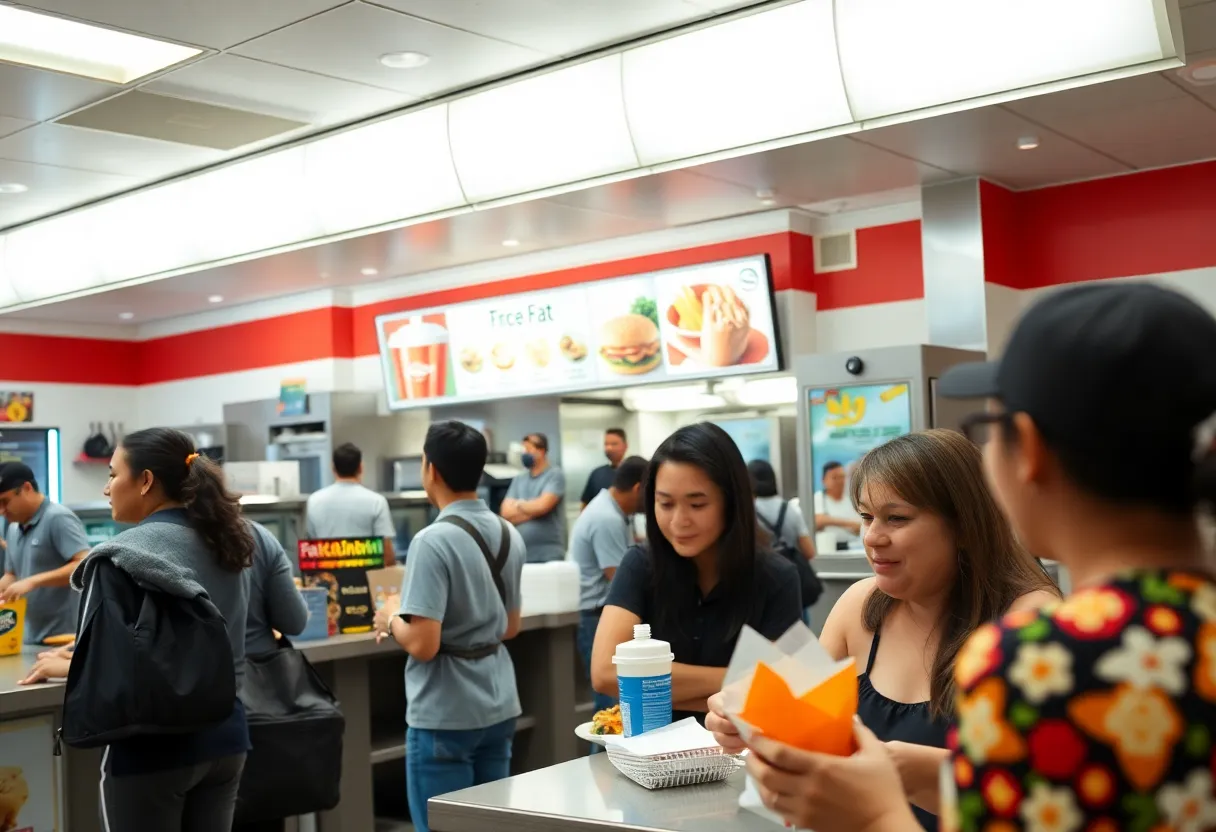News Summary
California’s implementation of the FAST Act has resulted in a mixed bag for fast food workers. While wages have increased to $20 per hour, the state has experienced a decline in employment in the sector. This has led to an average loss of experience among employees due to reduced hours despite the wage hikes. The ongoing debate continues as proponents and critics express conflicting views regarding the economic implications of this policy for the industry and workers alike.
California has seen mixed results following the implementation of the Fast Food Accountability and Standards Recovery (FAST) Act, which raised the minimum wage for fast food workers to $20 per hour. Passed in April 2024, the law was designed to assist approximately half a million fast food employees in the state, offering them a pay increase above the overall state minimum wage of $16.50.
Support and opposition to the FAST Act illustrate the policy’s controversial nature. The initiative has positively impacted many workers, as wages have reportedly increased by an average of 8% to 9%. This wage hike has provided financial relief for some employees, enabling them to manage expenses more comfortably. However, the law has also sparked significant debate, particularly regarding its effects on employment levels within California’s fast food sector.
Data from March 2025 indicated that jobs at limited-service restaurants in California declined by 3.1%, leading to the loss of over 22,600 positions. This decline stands in stark contrast to the national fast food job trend, which saw a 0.8% increase during the same timeframe. Fast food restaurant owners have responded to heightened wage costs by reducing labor hours and instituting hiring freezes. Many employees have reported that despite the wage increase, they are working fewer hours than previously, resulting in financial situations little changed from before the act’s implementation.
Economic analyses regarding the FAST Act yield conflicting findings. While some scholars suggest negligible impacts on employment levels, others cite significant job losses directly connected to the wage increase. For instance, economist Christopher Thornberg from Beacon Economics pointed to recent data highlighting considerable job losses in California’s fast food sector that align with the wage hike. Conversely, Michael Reich from UC Berkeley has argued that the FAST Act has not only benefited workers through wage growth but has done so without major job losses.
Despite higher earnings, many fast food employees face reduced weekly hours, as restaurants adjust their staffing to manage costs. For instance, franchise owner Kerri Harper-Howie has shared that her family’s business was forced to dip into savings to accommodate the increased wages while experiencing a decrease in sales, leading to cuts in employee hours without resorting to layoffs.
The price of fast food in California has also risen, showing a 1.9% increase relative to national price changes within the first six months after the FAST Act was put into effect. Such increases may reflect the financial strains on restaurant owners and the need to offset higher wage expenses.
Looking forward, the next Fast Food Council meeting is scheduled for January 23, 2025, where discussions will include a potential further wage increase to $20.70. Proponents of the policy continue to advocate for higher wages, asserting that employees deserve fair compensation, while critics, predominantly from the small business sector, warn against imposing additional costs that they argue could threaten their livelihoods.
As the debate surrounding the FAST Act continues, it remains clear that the impacts of increased wages for fast food workers in California are complex. While some employees express gratitude for the raised minimum, the accompanying reductions in work hours and job losses take a toll on many workers in the sector. The ongoing discussions and analyses will be crucial in determining the future direction of fast food wages and employment in the state.
Deeper Dive: News & Info About This Topic
- CNN: California Fast Food Wage Hike
- KTLA: California McDonald’s Owner on Wage Increase
- Reuters: California Fast Food Minimum Wage Increase
- The Guardian: California Fast Food Minimum Wage
- Inc.: California Fast Food Minimum Wage Controversy
- Wikipedia: Minimum Wage
- Google Search: California Fast Food Wage Hike
- Google Scholar: California Fast Food Wage Hike
- Encyclopedia Britannica: Minimum Wage
- Google News: California Fast Food Wage

Author: STAFF HERE CORONADO
The Coronado Staff Writer represents the experienced team at HERECoronado.com, your go-to source for actionable local news and information in Coronado, San Diego County, and beyond. Specializing in "news you can use," we cover essential topics like product reviews for personal and business needs, local business directories, politics, real estate trends, neighborhood insights, and state news affecting the area—with deep expertise drawn from years of dedicated reporting and strong community input, including local press releases and business updates. We deliver top reporting on high-value events such as the Coronado Island Film Festival, productions at Lamb’s Players Theatre, community workshops at John D. Spreckels Center, and iconic celebrations at Hotel del Coronado. Our coverage extends to key organizations like the Coronado Chamber of Commerce and Visit Coronado, plus leading businesses in hospitality, dining, and tourism that drive the local economy. As part of the broader HERE network, including HERESanDiego.com, HEREHuntingtonBeach.com, HERELongBeach.com, and HERELosAngeles.com, we provide comprehensive, credible insights into Southern California's dynamic landscape.





